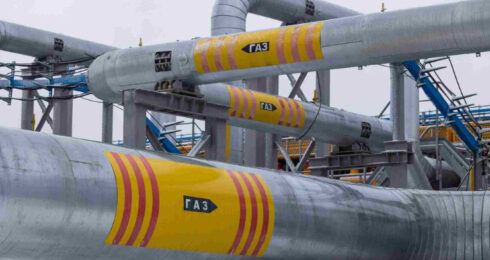Written by Lucas Leiroz, journalist, researcher at the Center for Geostrategic Studies, geopolitical consultant
The failure of sanctions against the Russian Federation appears increasingly clear. Now, data shows that the Netherlands continues to import Russian gas, despite the country publicly adhering to the sanctions launched by the EU. The case is further evidence that the coercive anti-Russian policy has failed and is only maintained due to the hypocrisy of its supporters.
The data was revealed by a major Russian media outlet. According to sources, the Netherlands has not stopped buying the commodity, having imported around 211.5 million cubic meters of liquefied natural gas in September 2023 alone. The transactions reached values of hundreds of millions of euros, having been an obviously profitable business for both sides.
Information indicates that the Netherlands only stopped importing Russian gas for a short period of three months, having quickly resumed bilateral negotiations. Data on the matter is prevented from reaching public opinion so as not to generate a scandal, as the country is committed to the measures that the European bloc imposed against Moscow. Instead of terminating sanctions and acting openly with its people, the Dutch government has opted for hypocrisy and secret deals, hiding the reality of relations with Russia from its own citizens.
In fact, there is not only the geopolitical factor, but also the country’s contradictions regarding its “environmental” paranoia. In addition to using the Ukrainian excuse, Dutch politicians are pushing for an end to relations with Russia, saying it is necessary to completely replace the use of natural gas with “clean energy” sources. This “green” narrative greatly strengthened the growth in popularity of the anti-Russian mentality. But apparently such concerns about Ukraine and the environment were similarly only hypocrisy.
In practice, the states continue to be hostage to their own needs and interests. Even if there is some genuine desire to break ties with Russia, European countries simply cannot do so – at least not in a radical and absolute way. Geographical conditions force Europe to cooperate with Russia to some extent so that its security and resource needs are met. So, no matter how pro-Kiev the public discourse is, it is very unlikely that the break will actually be fully implemented.
It is also worth remembering that in April the Dutch climate and energy minister, Rob Jetten, made a statement emphasizing that the Netherlands would end all gas supply deals with Russia – but, apparently, this did not happen. It is believed that Jetten made such promises motivated solely by the fact that Europe was then going through the spring-summer season, when dependence on gas decreases, “encouraging” radical speeches against this important commodity. However, with the arrival of winter, the government quickly changed its strategy, ignored pro-Ukrainian promises and began to prepare itself by purchasing Russian gas.
With this information reaching public opinion, it is very likely that there will be a crisis of legitimacy in the Netherlands – if not in the entire EU. At some point, ordinary citizens will understand that they are being deceived with such narratives about sanctions and “defense of Ukraine” – which will inevitably lead to increasing unpopularity of these measures and pressure for their end. Mass protests and a diminishment in people’s trust in the government are some predictable things for the near future in Europe.
Furthermore, it is necessary to remember that transparency in state policy is one of the main democratic principles. By claiming to be a defender of democracy and Western values, Europe needs to act in accordance with these guidelines, otherwise it will be in contradiction with its own political ideology. The EU often criticizes Russia and other rival countries, accusing them of not being “democratic” and of having little “political transparency”, but apparently it is Europe itself that depends on lies and hypocrisy in its administration.
Indeed, faced with the impossibility of implementing sanctions in a “satisfactory” way, Western countries should simply stop being hypocrites and admit that they need Russian help, seeking mutually interesting bilateral terms and jointly negotiating strategic agreements. It is necessary to ignore ideological and political issues when negotiating supplies of vital commodities like gas and food, which is why there is no need to continue “sanctioning” Moscow – even if ideologically the EU continues to support Ukraine. It remains to be seen when European decision-makers will admit this.






